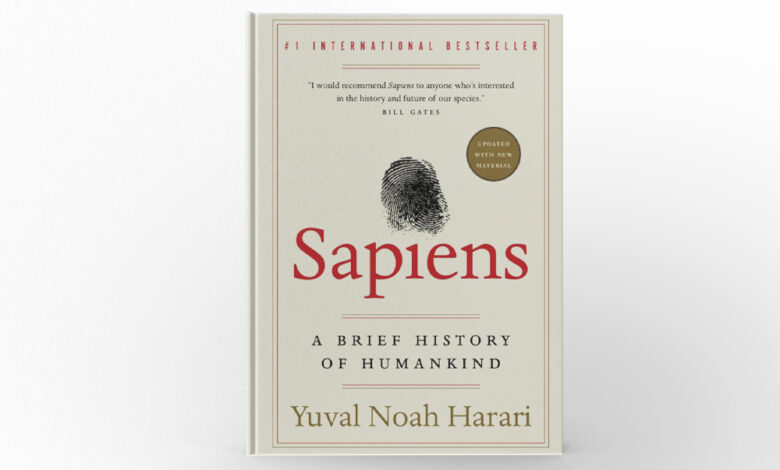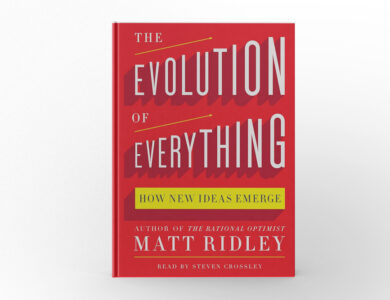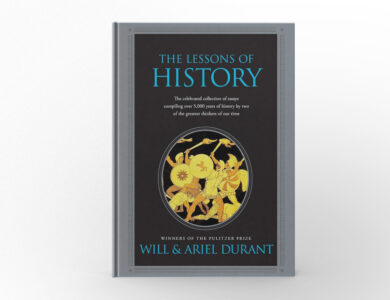
Sapiens by Yuval Noah Harari is a groundbreaking exploration of the history and evolution of humankind. In this captivating book, Harari delves into the profound journey of our species, from the dawn of Homo sapiens to the modern age. By weaving together insights from various disciplines, Harari presents a narrative that is both informative and thought-provoking. This book has gained acclaim for its ability to present complex ideas about human evolution and history in an engaging and accessible manner. For those interested in understanding the sweeping arc of human development, Sapiens offers an essential and enlightening read.
Author’s Background
Yuval Noah Harari is a distinguished historian and professor at the Hebrew University of Jerusalem. With a background in history and philosophy, Harari has gained international recognition for his innovative approach to understanding human evolution and societal development. His academic work focuses on the intersection of history, economics, and cognitive science. Harari’s previous works, including Homo Deus and 21 Lessons for the 21st Century, have also garnered widespread acclaim for their deep analysis of contemporary issues and future prospects. Sapiens represents a synthesis of Harari’s expertise and insight, offering a compelling overview of the human story.
In Depth Summary
The Evolution of Homo Sapiens
Sapiens by Yuval Noah Harari is structured around the major milestones in human evolution. Harari begins by exploring the Cognitive Revolution, which occurred approximately 70,000 years ago. This period marks the emergence of complex language, abstract thinking, and advanced social structures. Harari argues that these cognitive advancements enabled Homo sapiens to outcompete other species and establish dominance across the globe.
The Agricultural Revolution
The book continues with an analysis of the Agricultural Revolution, which began around 12,000 years ago. Harari examines how the transition from hunter-gatherer societies to settled agricultural communities fundamentally changed human life. This shift led to the development of large-scale societies, complex political structures, and technological innovations. However, Harari also highlights the downsides of agriculture, including increased social inequality and a more arduous way of life for many individuals.
The Unification of Humankind
Harari then explores the process of unification that began around 5,000 years ago. This period saw the emergence of empires, organized religions, and global trade networks. Harari discusses how these developments contributed to the creation of interconnected human societies and the spread of cultural and technological innovations. He argues that this unification process has been a driving force behind human progress and cooperation, despite the conflicts and challenges it has also brought.
The Scientific Revolution
The final section of Sapiens focuses on the Scientific Revolution, which began in the 16th century. Harari examines how advancements in science and technology have transformed human societies and our understanding of the world. He discusses the development of modern capitalism, the rise of industrialization, and the ongoing impact of scientific discoveries on contemporary life. Harari also reflects on the future implications of scientific progress and the ethical questions it raises.
Detailed Exploration of Historical Themes
Throughout Sapiens, Harari delves into various historical themes, including the nature of happiness, the role of myths and ideologies, and the impact of economic systems. He provides detailed case studies and historical examples to illustrate how these themes have influenced human development and societal structures. Harari’s analysis offers readers a comprehensive understanding of the factors that have shaped our species and continues to impact our lives today.
Themes and Insights
The Role of Cognitive Revolution
One of the central themes in Sapiens is the impact of the Cognitive Revolution on human evolution. Harari emphasizes how the development of complex language and abstract thinking allowed Homo sapiens to surpass other species and create sophisticated societies. This theme underscores the significance of cognitive advancements in shaping human history and societal progress.
The Paradox of Progress
Another key insight is the paradox of progress. Harari explores how advancements in technology and social organization have led to both positive and negative outcomes. While the Agricultural Revolution and Scientific Revolution brought about significant improvements in human life, they also introduced new challenges and inequalities. Harari’s analysis encourages readers to reflect on the complex relationship between progress and its consequences.
The Influence of Shared Myths
Harari also examines the role of shared myths and ideologies in shaping human societies. He discusses how religions, political systems, and cultural narratives have influenced human behavior and social structures. This theme highlights the power of collective beliefs in driving historical change and shaping human experiences.
Personal Reflections
Sapiens by Yuval Noah Harari is a profoundly thought-provoking book that offers a fresh perspective on human history and evolution. Harari’s ability to distill complex ideas into engaging prose makes this book a valuable resource for readers interested in understanding the broader narrative of human development. His exploration of cognitive advancements, social transformations, and scientific progress provides a comprehensive framework for reflecting on the past and contemplating the future.
Recommendation
The Lessons of History by Will and Ariel Durant is highly recommended for readers who seek a deeper understanding of human evolution and societal development. Yuval Noah Harari’s insightful analysis and engaging writing make this book a must-read for anyone interested in history, anthropology, and the dynamics of human civilization. Whether you are a history enthusiast or a casual reader, Sapiens offers valuable insights and a compelling narrative that will broaden your perspective on the human experience.
Impact and Legacy
Sapiens has had a significant impact on contemporary discussions about human evolution and societal development. Harari’s innovative approach and engaging writing have influenced both scholarly and popular audiences, sparking debates and discussions about the nature of progress, happiness, and the future of humanity. The book’s emphasis on interdisciplinary analysis and its exploration of complex historical themes have established it as a landmark work in the field of history and anthropology.
Conclusion
Sapiens by Yuval Noah Harari provides a comprehensive and engaging overview of the history and evolution of Homo sapiens. Through his exploration of cognitive advancements, social transformations, and scientific progress, Harari offers readers valuable insights into the forces that have shaped human civilization. For anyone interested in understanding the broader narrative of human development and reflecting on the future of our species, Sapiens is an essential and thought-provoking read.




